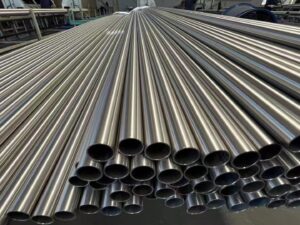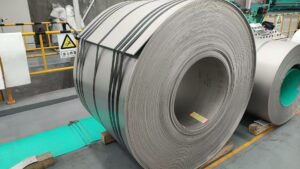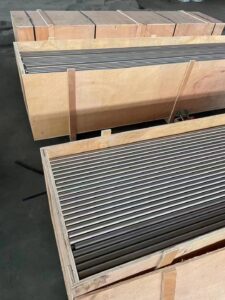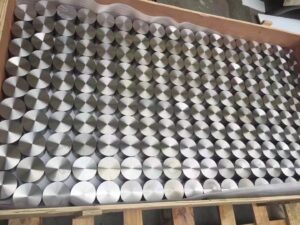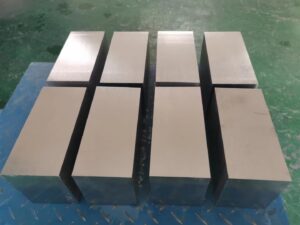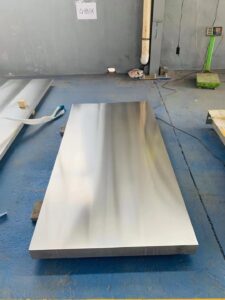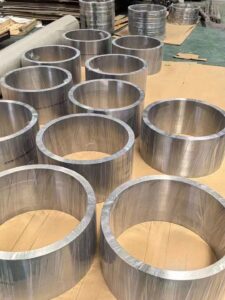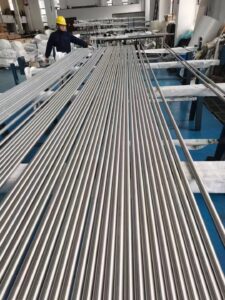Both superalloys and titanium alloys can be used in high-temperature and high-strength fields, and are widely used in the aerospace field.
So what is the difference in the performance of these two alloys?
1.Nickel-Based Alloy
Nickel-based superalloy refers to a type of metal material based on iron, nickel, and cobalt, which can work for a long time under a certain stress above 600 ° C ~ 1500 ° C, with excellent high temperature strength, good oxidation resistance and thermal corrosion resistance , good fatigue performance, fracture toughness and other comprehensive properties, also known as “super alloy”, is an important material widely used in aviation, aerospace, petroleum, chemical industry, and ships. According to the matrix elements, superalloys are divided into iron-based, nickel-based, cobalt-based and other superalloys. The service temperature of iron-based high-temperature alloys generally can only reach 750~780°C. For heat-resistant parts used at higher temperatures, nickel-based and refractory metal-based alloys are used. Nickel-based superalloy occupies a special and important position in the entire superalloy field. It is widely used to manufacture the hottest parts of aviation jet engines and various industrial gas turbines.
Its material characteristics 1. High temperature resistance, corrosion resistance 2. High processing difficulty .
2.Titanium Alloy
Titanium alloy refers to a variety of alloy metals made of titanium and other metals. Titanium has the characteristics of low density, high specific strength, low thermal conductivity, good high temperature and low temperature resistance, and strong corrosion resistance. Among them, the two most prominent advantages are high specific strength and strong corrosion resistance. Outer space has a wide range of uses, including aerospace, conventional weapons, boats and ocean engineering, nuclear power and thermal power generation, chemical and petrochemical, metallurgy, construction, transportation, sports and daily necessities, etc. In addition, titanium is non-toxic, light in weight, high in strength and has excellent biocompatibility. It is an ideal medical metal material and can be used as an implant implanted in the human body. According to performance and usage, titanium alloys are divided into corrosion-resistant titanium alloys, heat-resistant titanium alloys, high-strength titanium alloys, low-temperature titanium alloys, powdered titanium alloys, and functional titanium alloys.

